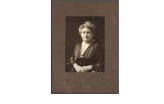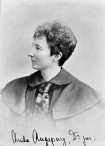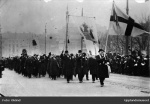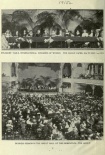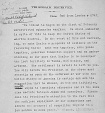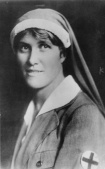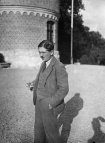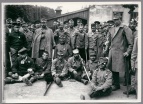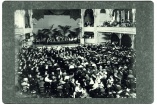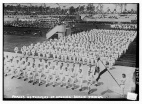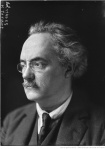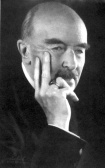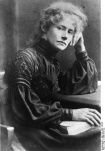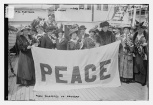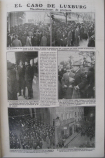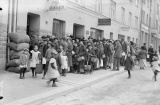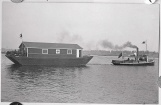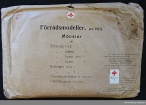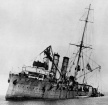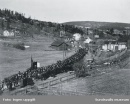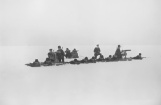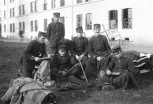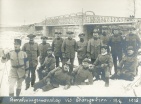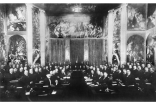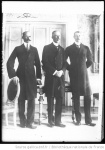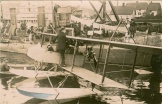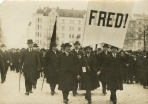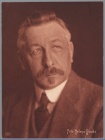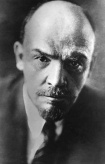Regions Sweden
Survey Articles (Regional)
Regional Thematic Articles
- Domestic Politics and Neutrality (Sweden)
- Exile and Migration (Sweden)
- Film/Cinema (Sweden)
- Foreign Policy (Sweden)
- Humanitarianism (Sweden)
- Intelligence and Espionage (Sweden)
- Making Sense of the War (Sweden)
- Military and Strategy (Sweden)
- Wartime and Post-war Economies (Sweden)
- Wartime and Post-war Societies (Sweden)
Encyclopedic Entries
Survey Articles (Regional)
-
For Sweden, the impact of the war was twofold. On the one hand, it was a test to the neutrality policy. Concessions and violations of neutrality got consequences for both foreign affairs and the … READ MORE
Regional
Regional Thematic Articles
-
This article focuses on how the Swedish neutrality policy during the First World War became a contentious topic''' '''in Swedish domestic politics. The food crisis in 1916–1917, social disquiet in … READ MORE
Regional Thematic -
Migration to and from Sweden has always occurred, but since emigration was larger than immigration, there was no need for immigration control. The outbreak of the war changed that. Although few … READ MORE
Regional Thematic -
Sweden succeeded in remaining a non-combatant through the First World War. However, the conflict affected the nation in many ways, for example in terms of film production and film consumption. The … READ MORE
Regional Thematic -
Until 1917, Swedish neutrality was characterized by a certain “benevolence” towards Germany. Eventually, pressure from food shortages and social unrest, following the government’s reluctance to … READ MORE
Regional Thematic -
This article offers an overview of Swedish transnational humanitarianism from 1914-1924. First, it sets Swedish wartime humanitarianism within the framework of benevolent Nordic neutrality. It … READ MORE
Regional Thematic -
Intelligence activities in Sweden during the war were largely influenced by the same set of factors as in other neutral countries. Due to relative accessibility and limited surveillance, Sweden was a … READ MORE
Regional Thematic -
This text gives a brief overview of the Swedish intellectual, literary and media responses to the war, and also of the Swedish responses to the new peacetime order in Europe. By the end of 1918, … READ MORE
Regional Thematic -
The Russian navy was suspicious of Swedish neutrality in 1914, as Sweden had been arming itself for many years, and almost unwittingly dragged the country into the war. Russia was seen as the main … READ MORE
Regional Thematic -
World War I had devastating effects on many European economies. Even a neutral country such as Sweden couldn’t completely escape this fact, finding itself no better off economically as a result of … READ MORE
Regional Thematic -
The First World War and its aftermath had a profound and enduring impact on Swedish society. As a neutral state, Sweden did not have to deal with the vast consequences of mass death and destruction, … READ MORE
Regional Thematic
Encyclopedic Entries
-
Elsa Brändström was the only neutral representative to work amongst prisoners of war (POWs) in Russia, Siberia, and Turkestan for five and a half years between winter between winter 1914 and summer … READ MORE
Entry -
A minority section of the women’s movements opposed World War I and organized the International Congress of Women at The Hague in April 1915. Its participants demanded women’s rights and more … READ MORE
Entry -
At the beginning of the 20th century, two different systems of exercise and training were internationally known: gymnastics and sport. As a result of the First World War, the boundaries … READ MORE
Entry -
During the 19th century, neutrality evolved into a set of legal and political tools designed to limit the impact of wars on the international system. This form of neutrality did not … READ MORE
Entry -
The Stockholm Conference, or Third Zimmerwald Conference, was held from 5 to 12 September 1917. The subject of the discussions was the way in which a certain part of the socialist movement conceived … READ MORE
Entry
See also
-
One sees a wide range of political regimes from a democratic republic with universal male suffrage (France) to parliamentary, constitutional, or even oligarchical monarchies in the countries that … READ MORE
Thematic -
Many issues surrounding the conduct of war in the years 1914-1918 were impervious to international negotiation or mediation, due either to a complete lack of consensus or to an absence of trust and … READ MORE
Thematic -
National Red Cross societies played a very important role in the First World War. They supported armies’ medical services, brought relief to prisoners of war and sometimes organized their … READ MORE
Thematic -
Female war reporters from belligerent and neutral countries were present in the major war theatres in Europe and the Middle East throughout 1914 to 1918. While admission of journalists to the war … READ MORE
Thematic
Survey Articles (Regional)
-
For Sweden, the impact of the war was twofold. On the one hand, it was a test to the neutrality policy. Concessions and violations of neutrality got consequences for both foreign affairs and the … READ MORE
Regional
Regional Thematic Articles
-
This article focuses on how the Swedish neutrality policy during the First World War became a contentious topic''' '''in Swedish domestic politics. The food crisis in 1916–1917, social disquiet in … READ MORE
Regional Thematic -
Migration to and from Sweden has always occurred, but since emigration was larger than immigration, there was no need for immigration control. The outbreak of the war changed that. Although few … READ MORE
Regional Thematic -
Sweden succeeded in remaining a non-combatant through the First World War. However, the conflict affected the nation in many ways, for example in terms of film production and film consumption. The … READ MORE
Regional Thematic -
Until 1917, Swedish neutrality was characterized by a certain “benevolence” towards Germany. Eventually, pressure from food shortages and social unrest, following the government’s reluctance to … READ MORE
Regional Thematic -
This article offers an overview of Swedish transnational humanitarianism from 1914-1924. First, it sets Swedish wartime humanitarianism within the framework of benevolent Nordic neutrality. It … READ MORE
Regional Thematic -
Intelligence activities in Sweden during the war were largely influenced by the same set of factors as in other neutral countries. Due to relative accessibility and limited surveillance, Sweden was a … READ MORE
Regional Thematic -
This text gives a brief overview of the Swedish intellectual, literary and media responses to the war, and also of the Swedish responses to the new peacetime order in Europe. By the end of 1918, … READ MORE
Regional Thematic -
The Russian navy was suspicious of Swedish neutrality in 1914, as Sweden had been arming itself for many years, and almost unwittingly dragged the country into the war. Russia was seen as the main … READ MORE
Regional Thematic -
World War I had devastating effects on many European economies. Even a neutral country such as Sweden couldn’t completely escape this fact, finding itself no better off economically as a result of … READ MORE
Regional Thematic -
The First World War and its aftermath had a profound and enduring impact on Swedish society. As a neutral state, Sweden did not have to deal with the vast consequences of mass death and destruction, … READ MORE
Regional Thematic
Encyclopedic Entries
-
Elsa Brändström was the only neutral representative to work amongst prisoners of war (POWs) in Russia, Siberia, and Turkestan for five and a half years between winter between winter 1914 and summer … READ MORE
Entry -
A minority section of the women’s movements opposed World War I and organized the International Congress of Women at The Hague in April 1915. Its participants demanded women’s rights and more … READ MORE
Entry -
At the beginning of the 20th century, two different systems of exercise and training were internationally known: gymnastics and sport. As a result of the First World War, the boundaries … READ MORE
Entry -
During the 19th century, neutrality evolved into a set of legal and political tools designed to limit the impact of wars on the international system. This form of neutrality did not … READ MORE
Entry -
The Stockholm Conference, or Third Zimmerwald Conference, was held from 5 to 12 September 1917. The subject of the discussions was the way in which a certain part of the socialist movement conceived … READ MORE
Entry


















